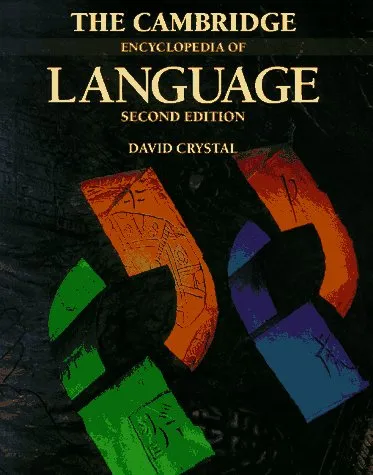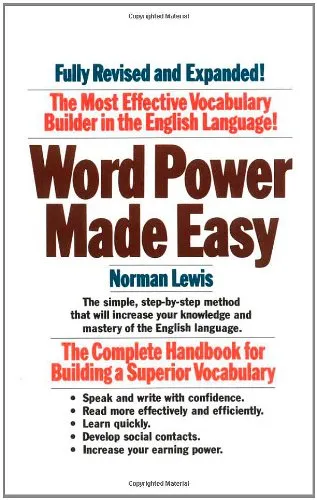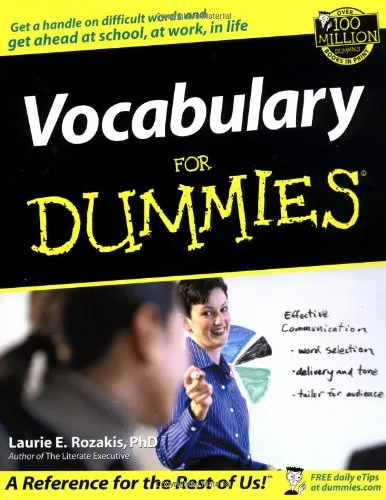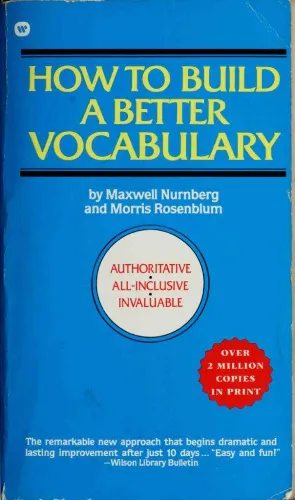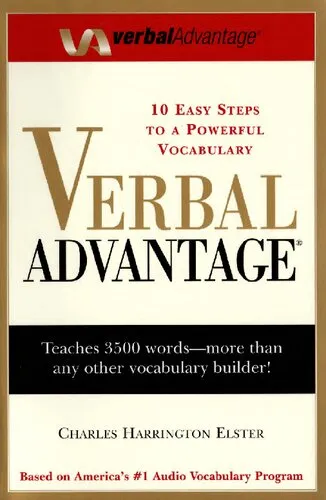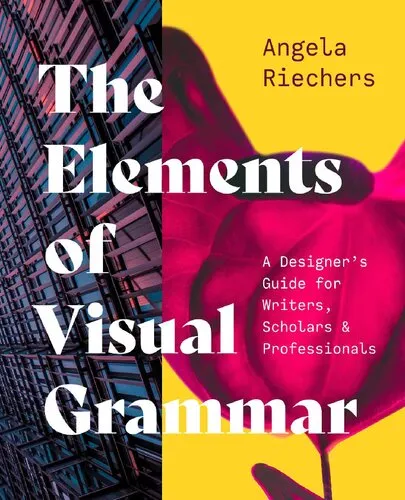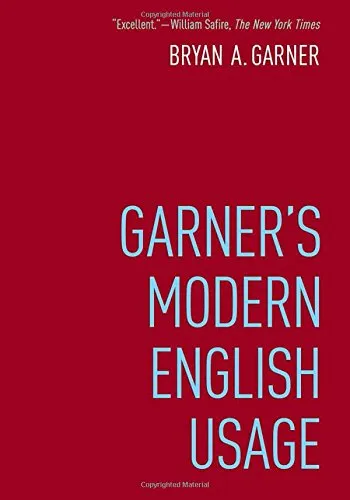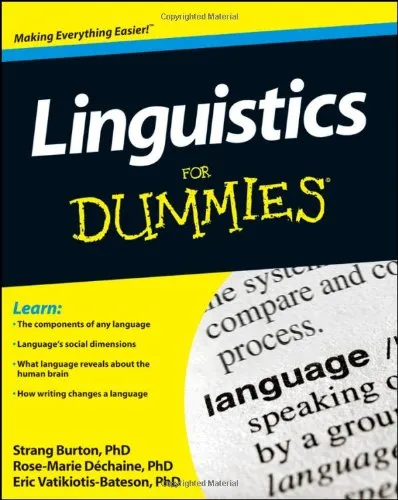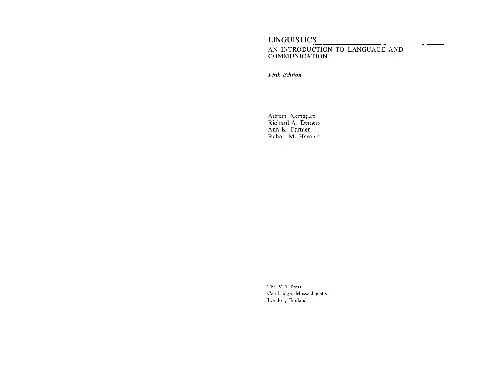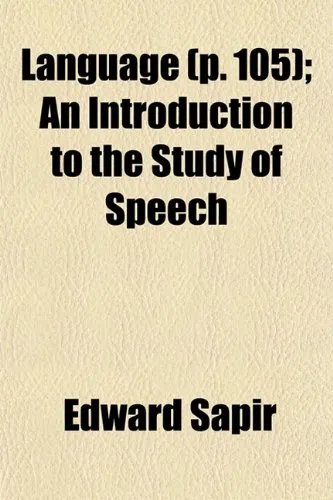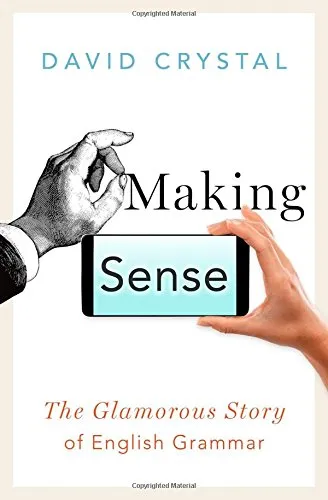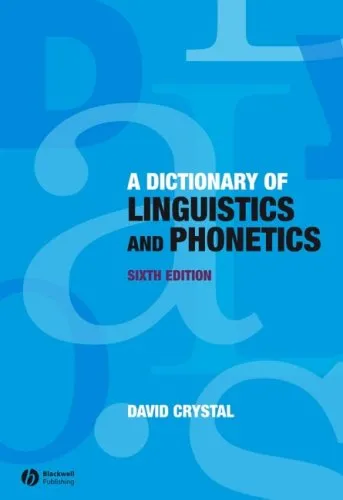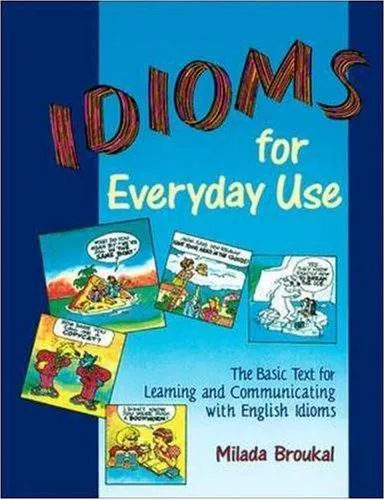The Cambridge encyclopedia of language
4.5
بر اساس نظر کاربران

شما میتونید سوالاتتون در باره کتاب رو از هوش مصنوعیش بعد از ورود بپرسید
هر دانلود یا پرسش از هوش مصنوعی 2 امتیاز لازم دارد، برای بدست آوردن امتیاز رایگان، به صفحه ی راهنمای امتیازات سر بزنید و یک سری کار ارزشمند انجام بدینکتاب های مرتبط:
مقدمهای بر کتاب 'The Cambridge Encyclopedia of Language'
کتاب The Cambridge Encyclopedia of Language نوشتهٔ دیوید کریستال، یک اثر جامع و همهجانبه در حوزهٔ زبانشناسی است که به بررسی گستردهای از موضوعات مرتبط با زبان، از ساختارهای زبانی تا کاربردهای اجتماعی، میپردازد. این دانشنامه برجسته، دانشجویان، اساتید و کسانی که به زبان و زبانشناسی علاقهمندند را مخاطب خود قرار داده و نقطه نظرات متنوعی در مورد همه جنبههای زبان ارائه میدهد.
خلاصه جامع کتاب
کتاب در بیش از ۵۰۰ صفحه و با استفاده از صدها تصویر، نمودار و جدول، به زبانی روان و قابلفهم مباحث مختلف زبان را بررسی میکند. این اثر به موضوعاتی چون ساختار زبان، زبان و محیط اجتماعی، یادگیری زبان، و تغییرات زبانی میپردازد. دیوید کریستال در این کتاب به تعاریف پایهای زبانها، مقولههای زبانی، و روابط میان زبان و فرهنگ نیز توجه خاصی دارد.
هر فصل از این دانشنامه به یکی از جنبههای زبان تخصیص داده شده و مباحث مطرحشده در آن، به شکلی سازمانیافته و همراه با مثالهای متنوع ارائه میشوند. کریستال تلاش کرده تا در این کتاب، زبان را به عنوان پدیدهای پویا و در حال تحول به تصویر بکشد.
نکات کلیدی
- تعریف دقیق ساختارهای زبانی و نحوهی کارکرد آنها.
- بررسی ارتباطات متقابل زبان و فرهنگ.
- نقش زبان در شکلگیری هویت اجتماعی و فردی.
- نقد زبانشناسی تاریخی و توسعه زبانی در طول زمان.
جملات معروف از کتاب
"زبان یکی از پیچیدهترین پدیدههای بشری است که تمام ابعاد زندگی انسان را تحت تأثیر قرار میدهد."
“When a language dies, a part of its culture dies with it."
چرا این کتاب مهم است
The Cambridge Encyclopedia of Language اثری بنیادین است زیرا با نگاهی جامع و همهجانبه به موضوع زبان میپردازد. این کتاب نقش مؤثری در جمعآوری و سازماندهی اطلاعات به روز زبانشناسی دارد. اهمیت این کتاب در این است که برای افراد با علایق و درجات مختلف در زبانشناسی کاربرد دارد و راهنمایی معتبر برای شناخت بهتر پدیدههای زبانی ارائه میدهد.
Welcome to the fascinating world of language, explored in depth through 'The Cambridge Encyclopedia of Language' authored by David Crystal. This comprehensive reference is essential for anyone keen on understanding the myriad elements of human communication. Whether you are a linguist, educator, student, or simply a language enthusiast, this encyclopedia offers a wealth of information to satisfy your curiosity and enrich your knowledge.
Summary of the Book
At its core, 'The Cambridge Encyclopedia of Language' serves as a broad and insightful overview of language, covering an array of topics that highlight the diversity and complexity of linguistic phenomena. The book is structured to guide the reader through the historical and contemporary landscape of language studies.
The book begins by exploring the origin of language and its early development, contemplating theories ranging from evolutionary processes to cultural influences. It delves into the structure of language, elucidating grammar systems, syntax, phonetics, and semantics with clarity and precision. Readers gain insight into spoken and written communication forms, understanding how languages have evolved over time and adapted to societal changes.
Furthermore, David Crystal addresses the role of language in social identity, power dynamics, and its impact on culture. The book also takes a closer look at the various linguistic disciplines, including sociolinguistics, psycholinguistics, and applied linguistics, offering a comprehensive view of how language is used in multifaceted ways across different contexts and communities.
Key Takeaways
- Language is a dynamic and evolving construct, which is intrinsically linked to human thought, identity, and society.
- The structure of language, encompassing phonology, morphology, syntax, and semantics, is fundamental in understanding how language conveys meaning.
- Linguistic diversity reflects cultural diversity; preserving languages is paramount to maintaining cultural heritage.
- Language acquisition theories provide insight into how humans learn language, highlighting both universal patterns and individual variances.
- The field of linguistics is interdisciplinary, intersecting with psychology, anthropology, and computer science, among others.
Famous Quotes from the Book
"Language is the fabric of thought, the medium through which ideas are woven." - David Crystal
"The richness of human language provides a window into the complexity of the human mind." - David Crystal
Why This Book Matters
The significance of 'The Cambridge Encyclopedia of Language' lies in its exhaustive examination of language from multiple perspectives. Language is not merely a tool for communication but a profound reflection of human cognition, social interaction, and cultural evolution. David Crystal successfully compiles a comprehensive body of work that is both informative and accessible, making it an invaluable resource for understanding the essence of linguistic studies.
Additionally, the book matters because it raises awareness about the importance of language preservation in a rapidly globalizing world where minority languages are at risk of extinction. Language is intrinsic to cultural identity, and losing a language equates to losing a vital part of history and human diversity.
For educators and students, the encyclopedia acts as an excellent pedagogical tool, offering insights and knowledge that are essential in cultivating a deeper understanding of linguistics. By enlightening readers about the complexities and beauties of language, the book contributes significantly to the academic and public discourse on the subject.
دانلود رایگان مستقیم
شما میتونید سوالاتتون در باره کتاب رو از هوش مصنوعیش بعد از ورود بپرسید
دسترسی به کتابها از طریق پلتفرمهای قانونی و کتابخانههای عمومی نه تنها از حقوق نویسندگان و ناشران حمایت میکند، بلکه به پایداری فرهنگ کتابخوانی نیز کمک میرساند. پیش از دانلود، لحظهای به بررسی این گزینهها فکر کنید.
این کتاب رو در پلتفرم های دیگه ببینید
WorldCat به شما کمک میکنه تا کتاب ها رو در کتابخانه های سراسر دنیا پیدا کنید
امتیازها، نظرات تخصصی و صحبت ها درباره کتاب را در Goodreads ببینید
کتابهای کمیاب یا دست دوم را در AbeBooks پیدا کنید و بخرید
1480
بازدید4.5
امتیاز0
نظر98%
رضایتنظرات:
4.5
بر اساس 0 نظر کاربران
Questions & Answers
Ask questions about this book or help others by answering
No questions yet. Be the first to ask!
